And on June 5, 1911, with the new name Van Ba, the young man Nguyen Tat Thanh boarded the ship Amiral La Touche De Treville, leaving Nha Rong port, starting his journey to find a way to save the country.
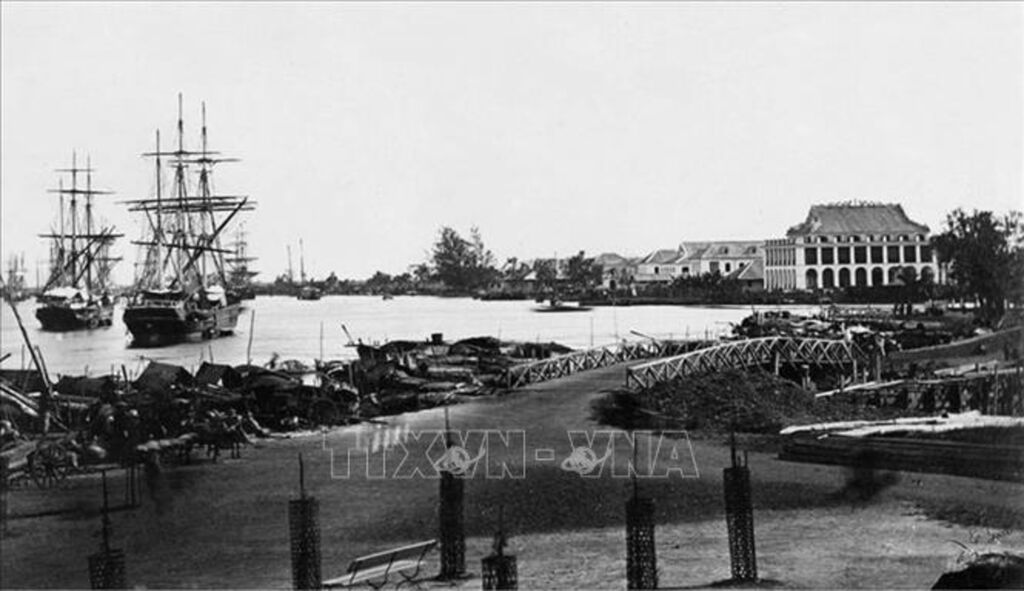 |
| Nha Rong Wharf (Saigon) in the early 20th century. From this place, on June 5, 1911, the patriotic young man Nguyen Tat Thanh left the Fatherland on the ship Admiral Latouche-Tréville to fulfill his ambition of liberating the country from the slavery of colonialism and imperialism. |
On June 5, 1911, on the French ship Amiral La Touche De Tréville, the patriotic young man Nguyen Tat Thanh (who was 21 years old at the time) left Saigon to begin a 30-year journey to find a way to liberate the nation. Who would have known that this trip was not only a special mark in the revolutionary life of President Ho Chi Minh , but also a major milestone in the history of the Vietnamese nation. Because it was from this milestone that Uncle Ho found the right direction, changing the destiny of the entire nation.
* “Freedom for my people, independence for my Fatherland…”
In the late 19th and early 20th centuries, our country was immersed in the dark night of slavery under the domination of French colonialists. They turned our country into a semi-feudal colony and used all kinds of insidious tricks to exploit resources, brutally exploiting the wealth and labor of our people to enrich the mother country. Promoting the tradition of patriotism, our people rose up to carry out many struggles against French colonialists and their lackeys, but all failed. Many patriots such as Phan Boi Chau and Phan Chu Trinh went abroad to find a way to save the country but still could not find a truly effective path.
Born and raised in a patriotic Confucian family, in a village rich in historical, cultural and revolutionary traditions; witnessing the loss of his country and home, the patriotic young man Nguyen Tat Thanh soon forged a will and a burning desire to gain independence and freedom for his Fatherland.
And on June 5, 1911, with the new name Van Ba, the young man Nguyen Tat Thanh boarded the ship Amiral La Touche De Treville, leaving Nha Rong port, starting his journey to find a way to save the country.
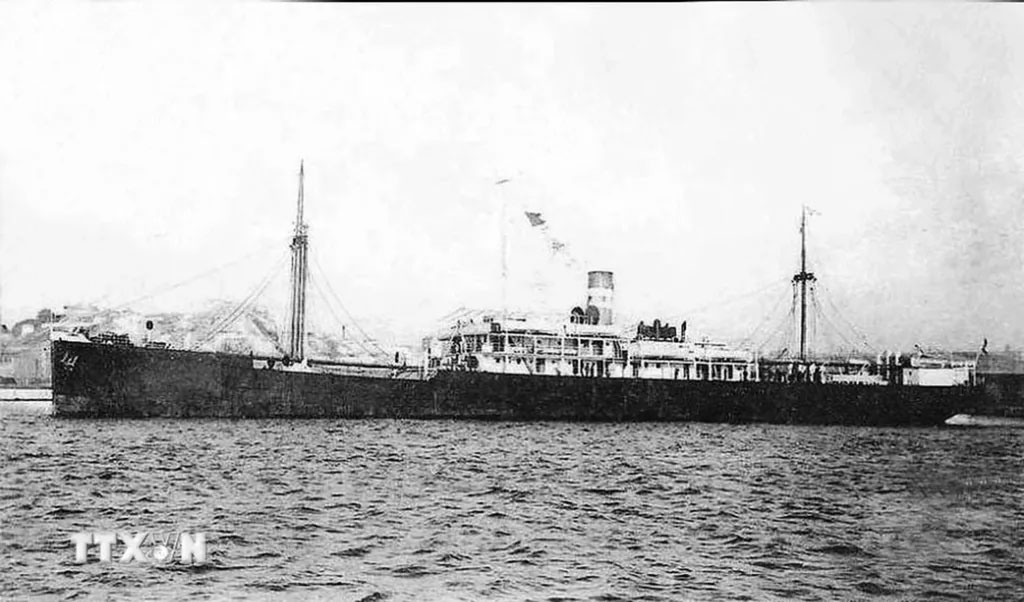 |
| The Latouche Treville, the ship that took the young patriot Nguyen Tat Thanh to find a way to save the country from Saigon Port. |
With a special political perspective, he decided to go to the West, the origin of colonialism, the homeland of bourgeois revolutions, to find out what was hidden behind the words "Liberty", "Equality", "Fraternity"; to see how France and other countries did it, and then return to help his compatriots.
Within 10 years, from 1911 to 1920, he took advantage of every opportunity to visit many places in the world . His footprints were imprinted on many countries in the continents of Europe, Asia, Africa, and America. He especially stayed for a long time in America, England, and France. He immersed himself in the lives of the working people, doing any job to live and work, such as: kitchen assistant, snow shoveling, furnace lighting, photography, gardening, painting for hire... While working, he also took the opportunity to study and research...
In early 1919, he joined the French Socialist Party. On June 18, 1919, under the name Nguyen Ai Quoc, he represented Vietnamese patriots in France and sent a petition to the Versailles Conference, asking for freedom, democracy, and national equality for the people of Annam. Although the petition was not accepted, it was widely circulated, causing a great resonance in French public opinion, awakening the fighting spirit of the colonies; at the same time, it also brought him the realization that nations wishing to be liberated could only rely on their own strength.
Later, at the 18th Congress of the French Socialist Party held in Tours (France), Uncle Ho supported the 3rd Communist International, an organization that stood on the side of the colonial people and affirmed to female comrade Rose: "Freedom for my compatriots, independence for my Fatherland, that is all I want, that is all I understand" (1).
* Historical turning point
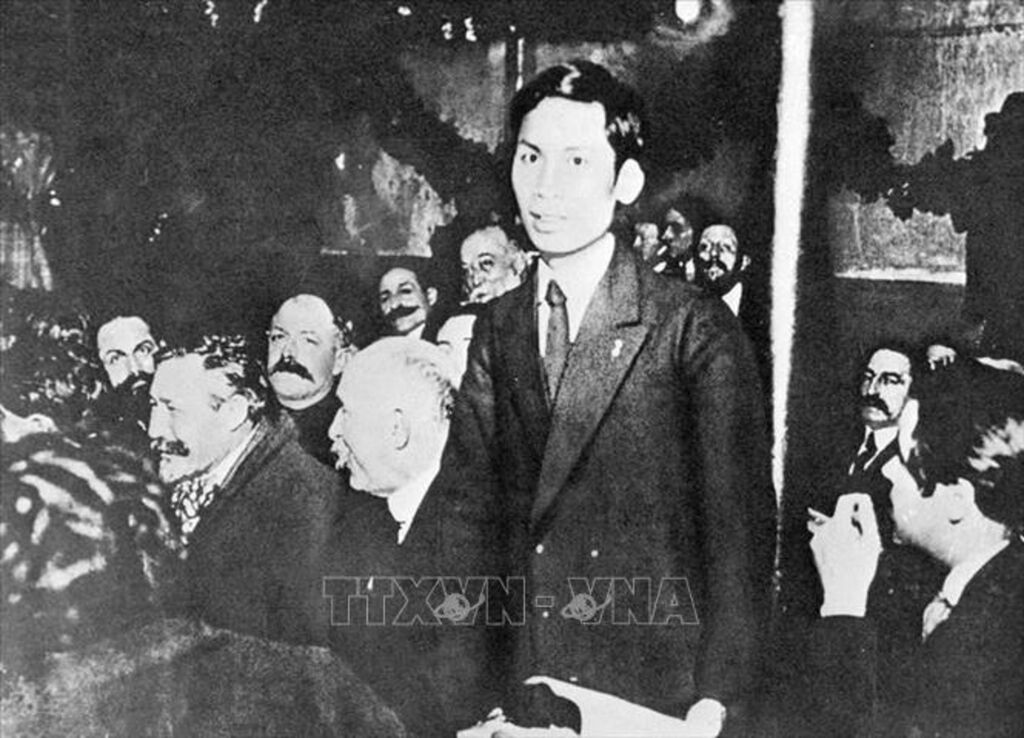 |
| From December 25 to 30, 1920, Nguyen Ai Quoc (the name of President Ho Chi Minh during his revolutionary activities in France) attended the 18th Congress of the French Socialist Party in the city of Tours as a delegate of Indochina. Nguyen Ai Quoc supported Lenin's Theses on the National and Colonial Questions; approved the establishment of the French Communist Party and became one of the founders of the French Communist Party, and also the first Communist of the Vietnamese people. |
In 1920, Nguyen Ai Quoc came to Marxism-Leninism, finding there the light of truth of the times, the path to national liberation, social liberation, and human liberation. Later, when recalling that important event in an article in Nhan Dan newspaper on April 22, 1960 about the moment he read the "First draft of theses on the national and colonial questions" by V. Lenin in mid-July 1920, he wrote: "Lenin's theses made me so moved, excited, enlightened, and confident! I was so happy that I cried. Sitting alone in my room, I spoke loudly as if I were speaking before a large crowd: Oh, my suffering compatriots! This is what we need, this is the path to our liberation!" (2)
Studying Marxism-Leninism, with a correct patriotic stance, he concluded: "To save the country and liberate the nation, there is no other way than the proletarian revolutionary path" (3) and "only socialism and communism can liberate oppressed peoples and working people around the world from slavery" (4). This conclusion affirmed the profound change in Nguyen Ai Quoc's thinking, from a true patriot to a communist - the first communist party member of Vietnam.
Absorbing and creatively applying Marxism-Leninism, he gradually built a theoretical system on national liberation revolution suitable to Vietnam's reality, correctly identified the goals, paths, participating forces, leading forces, as well as revolutionary methods and actively prepared all aspects for the birth of a revolutionary political party in Vietnam.
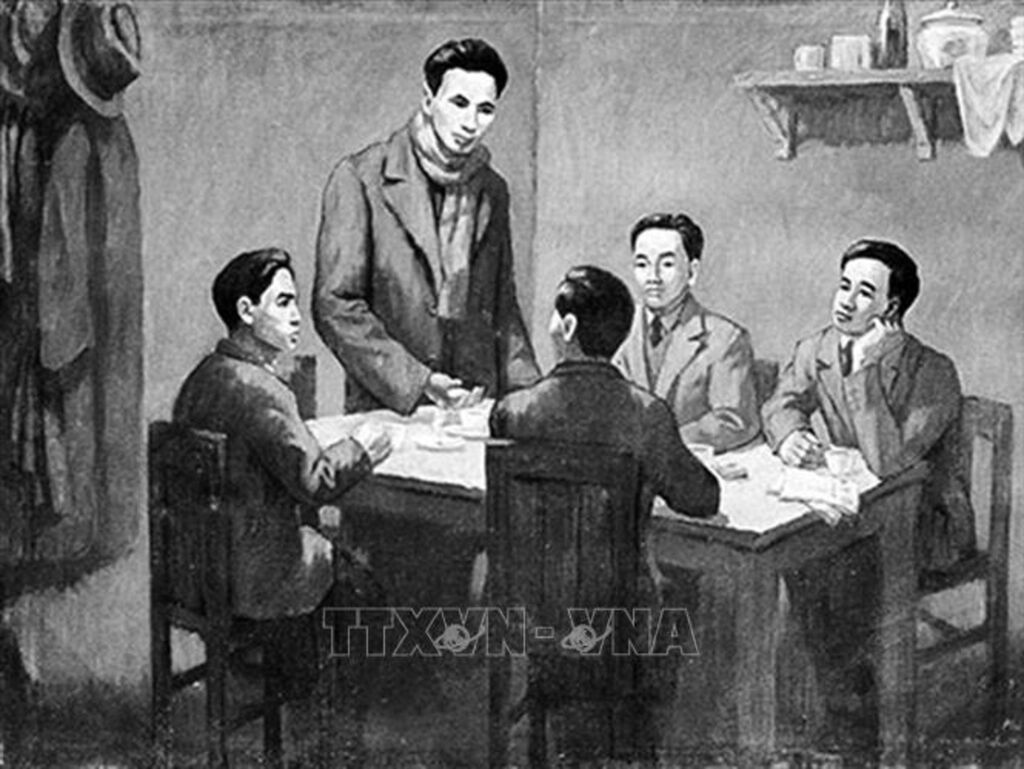 |
| From January 6 to February 7, 1930, the conference to unify communist organizations to establish the Communist Party of Vietnam was held in Kowloon Peninsula, Hong Kong (China) under the chairmanship of comrade Nguyen Ai Quoc on behalf of the Communist International. |
On February 3, 1930, under his chairmanship, in Hong Kong (China), the conference to unify three communist organizations agreed to establish a unified party, named the Communist Party of Vietnam. This was a major historical event, ending the long-standing crisis in the political line and organization of Vietnamese patriotic movements.
The birth of the Party affirmed the vision, role, mettle, intelligence and prestige of President Ho Chi Minh; it was his great and creative contribution in applying Marxism-Leninism to the establishment of a genuine revolutionary party to lead the Vietnamese revolution.
* He devoted his whole life to the glorious revolutionary cause of the nation.
After 30 years of working abroad, on January 28, 1941, Nguyen Ai Quoc returned home to directly lead the revolutionary struggle.
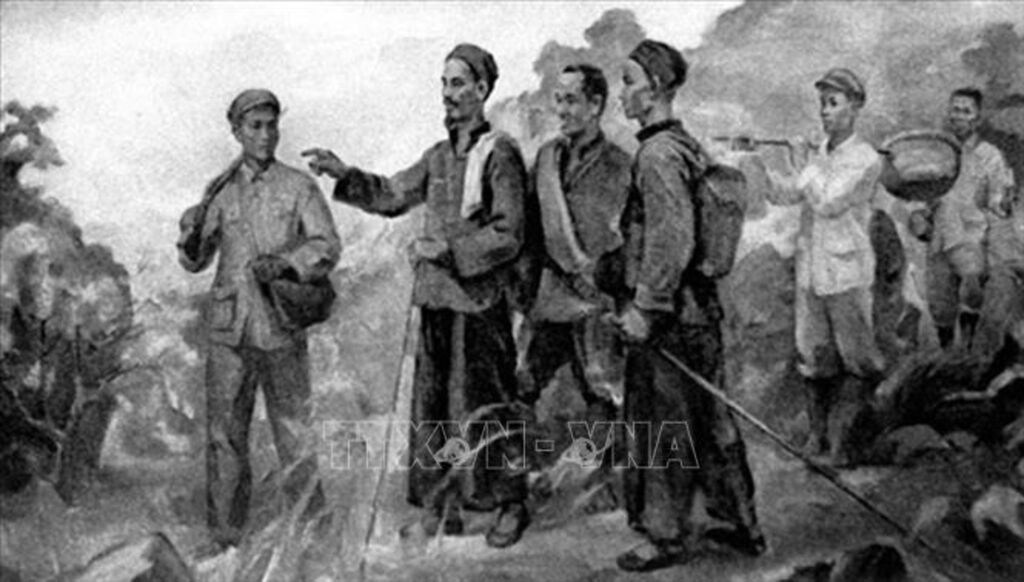 |
| After 30 years of wandering, on January 28, 1941, Nguyen Ai Quoc - Uncle Ho returned from China and stayed in Pac Bo (Cao Bang), directly leading the revolutionary struggle. He pointed out that, in the specific conditions of Vietnam, the only path to follow was the path of national democratic revolution led by the vanguard party of the working class to overthrow imperialism and colonialism, gain national independence, and then move forward to carry out the socialist revolution. |
In May 1941, he chaired the 8th Central Conference and decided to change the revolutionary strategy to suit the rapid changes in the international and domestic situation, placing the task of national liberation first, organizing and mobilizing the entire nation's forces; establishing the Viet Minh Front; building armed forces and bases, creating vibrant and strong revolutionary movements across the country.
In August 1945, with extremely sensitive and sharp political thinking, accurate forecasts, timely and thorough analysis of the domestic and international situation, clearly recognizing that the revolutionary opportunity was ripe, he stated his determination "Even if we have to burn the entire Truong Son range, we must resolutely win national independence", "use our own strength to liberate ourselves". Under the leadership of the Party, headed by Leader Ho Chi Minh, the Vietnamese people united into one bloc, highly promoted the strength of the entire nation, made the victory of the August Revolution in 1945, overthrew the colonial and feudal regimes, established the Democratic Republic of Vietnam - the first people's democratic state in Southeast Asia, opening a new, most brilliant era in the glorious history of the nation - the Ho Chi Minh era.
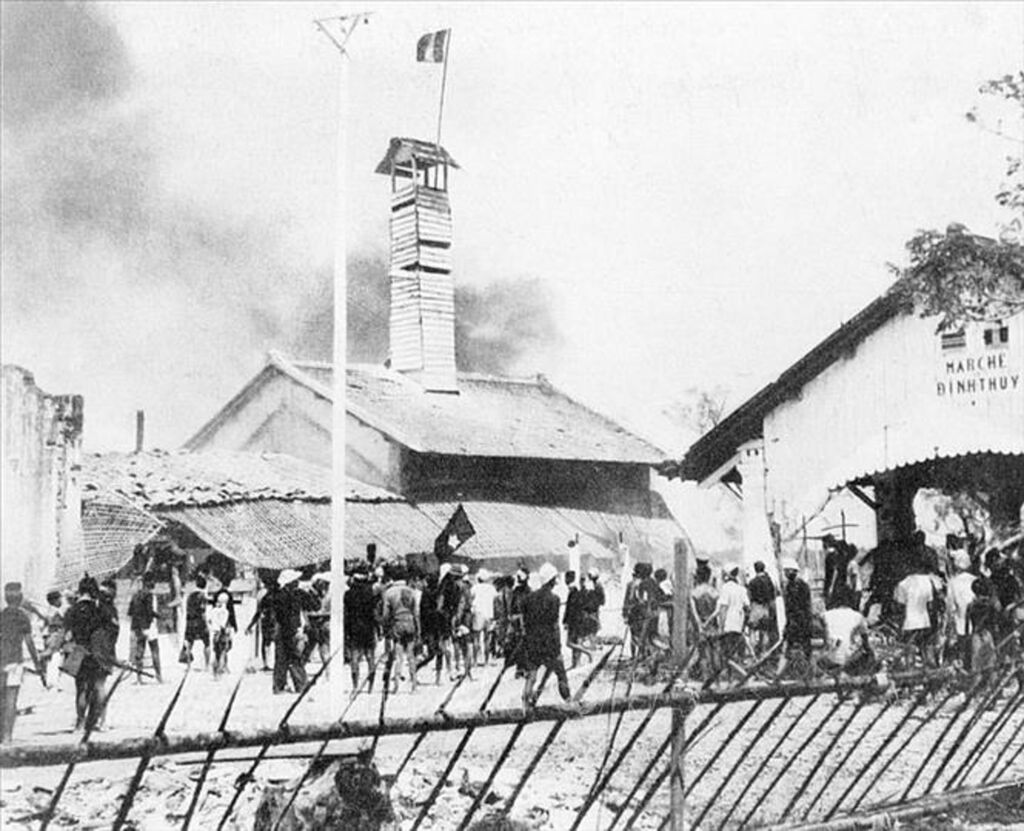 |
| On November 23, 1940, the Southern Uprising broke out in many southern provinces. Along with the Bac Son Uprising, the Southern Uprising was "the gunshots signaling a nationwide uprising", the second rehearsal for the victory of the August Revolution in 1945. |
Then, under the leadership of the Communist Party of Vietnam and President Ho Chi Minh, our country's revolution overcame countless difficulties and challenges, going from one victory to another. That was the victory of the resistance war against French colonialism, the peak of which was the Dien Bien Phu victory "resounding throughout the five continents, shaking the earth", completely liberating the North, building a great rear base for the struggle to unify the country; It was the great victory of the resistance war against the US, saving the country, ending with the historic Ho Chi Minh campaign, completely liberating the South, unifying the country; It was the initial victory with great achievements, of historical significance for the cause of national renewal and international integration...
In the cause of renovation, facing many complicated developments in the world situation and difficulties at home, our Party has been steadfast in Marxism-Leninism and Ho Chi Minh Thought, creatively applied and developed them in the country's reality and has achieved great and historic achievements. The achievements of nearly 40 years of renovation have affirmed that our Party's renovation policy based on Marxism-Leninism and Ho Chi Minh Thought is correct, creative, and suitable to Vietnam's reality and the development trend of the times.
In his speech commemorating the 130th birthday of President Ho Chi Minh, General Secretary Nguyen Phu Trong affirmed: “President Ho Chi Minh devoted his entire life to the glorious revolutionary cause of our Party, our nation, our people and international friends. His name and career will forever remain with our country, live forever in the hearts of our nation and in the hearts of humanity. He left our Party, our people, today's and future generations an extremely precious ideological legacy, a shining example of morality, style and way of life!”./.
(1): Ho Chi Minh: Biographical Chronicle, National Political Publishing House, 2006, vol.1, pp.111-112
(2): Ho Chi Minh: Complete Works, National Political Publishing House, Hanoi, 2011, vol.12, p.562
(3): Ho Chi Minh: Complete Works, ibid, vol. 12, p. 30
(4) Ho Chi Minh: Complete Works, op. cit., vol. 12, p. 563.
According to chinhsachcuocsong.vnanet.vn
Source



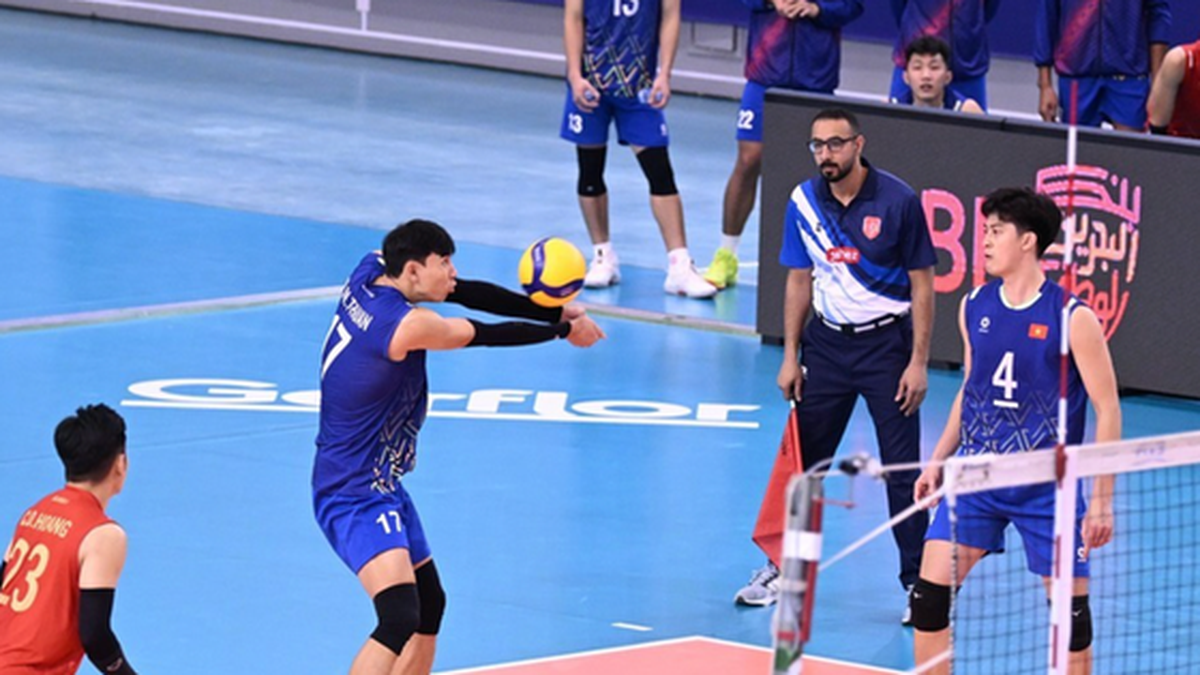

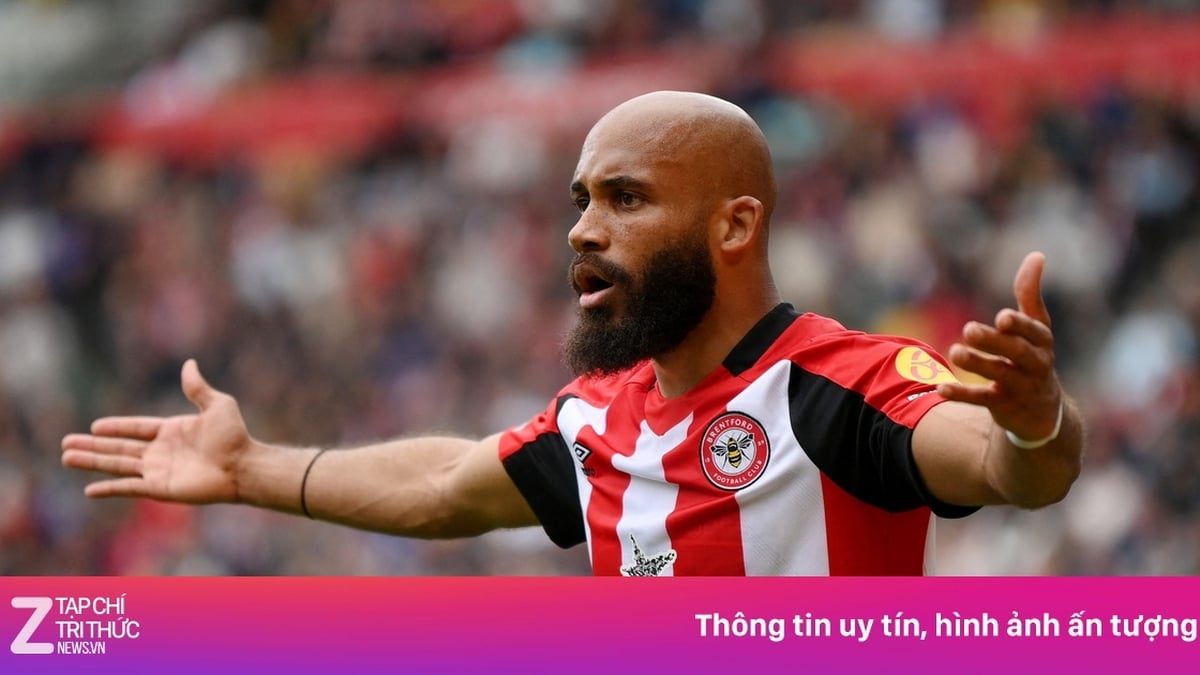


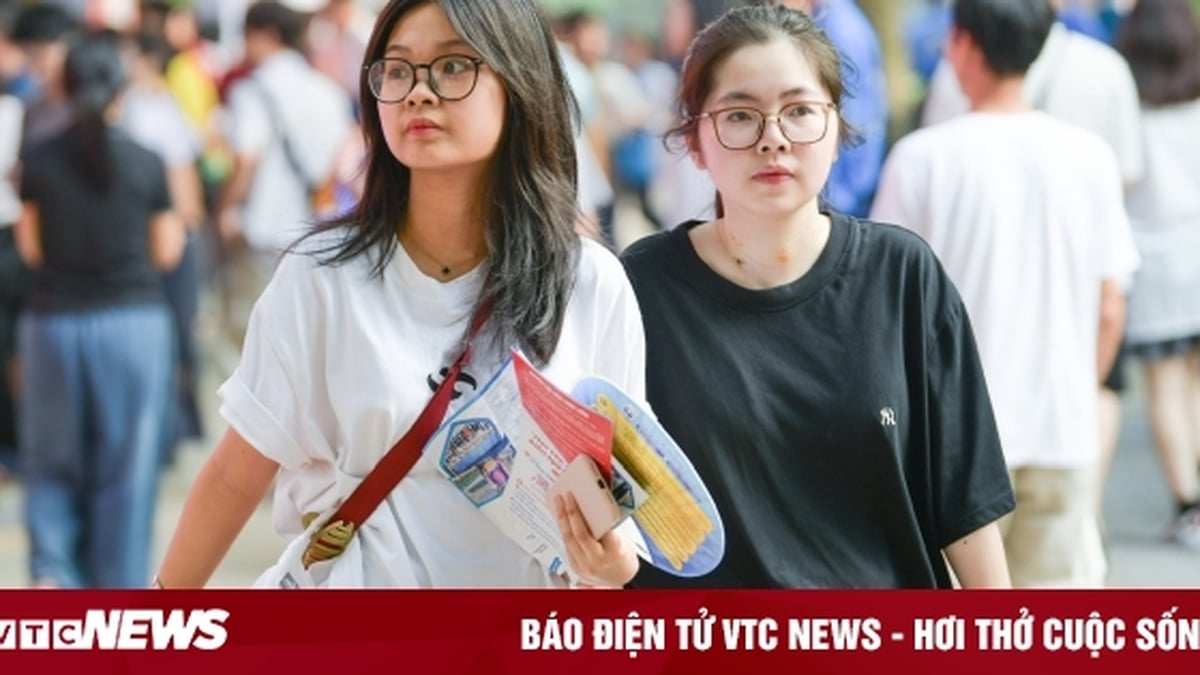


























































































Comment (0)